Retro Replay Review
Gameplay
Little Samson’s core gameplay revolves around seamless character switching and exploiting each adventurer’s unique abilities to navigate intricate levels and dispatch enemies. The journey begins with each hero making their way to Emperor Hans’ castle, allowing players to become intimately familiar with Samson’s rock-climbing prowess, Kikira’s gliding dragon wings, Gamm’s rock-solid resilience, and K.O.’s nimble traversal. This variety ensures that no two stages play out the same way, as certain obstacles and hidden paths cater specifically to one character’s talents.
(HEY YOU!! We hope you enjoy! We try not to run ads. So basically, this is a very expensive hobby running this site. Please consider joining us for updates, forums, and more. Network w/ us to make some cash or friends while retro gaming, and you can win some free retro games for posting. Okay, carry on 👍)
Once all four heroes unite and share Samson’s magical bell, players can instantly swap between characters at any time, creating dynamic puzzle-platforming scenarios. Stuck on a vertical shaft? Call upon Samson to scale walls. Need to traverse icy platforms? Kikira’s clawed feet hold firm on slippery surfaces. Confronted with spike traps? Gamm laughs in the face of sharp hazards, while K.O. can slip through narrow passages or lay time-delay bombs to clear the way. Mastering the timing and synergy of these abilities is crucial for both survival and uncovering secret rooms.
The level design in Little Samson strikes a fine balance between challenge and accessibility. Early stages introduce each character’s mechanics in controlled environments, while later areas demand quick reflexes, strategic swaps, and memorization of enemy patterns. Boss encounters further emphasize teamwork, as certain foes are weak to elemental fire from Kikira or brute force from Gamm. Health and magic meters add a layer of resource management, encouraging exploration to collect bells and power-ups that replenish strength and special attacks.
Controls feel responsive and tight, a testament to the careful tuning of this NES-era platformer. Jump arcs are consistent, attack animations blend smoothly with movement, and each character handles distinctively without feeling unwieldy. A single life pool shared among the party instills a sense of teamwork—losing all power on any character costs a life—so players learn to rotate through the roster to mitigate damage and preserve progress. Overall, the gameplay loop remains engaging from start to finish.
Graphics
Visually, Little Samson showcases some of the best pixel artistry of its time, with vibrant color palettes that bring each of the four homelands to life. Lush forests, frozen caverns, volcanic chasms, and ghostly ruins feature detailed backgrounds that scroll seamlessly as you move. The distinct thematic flair of each stage keeps the presentation fresh and motivates players to push onward just to see the next environment.
Character sprites are well-animated and instantly recognizable, even in the heat of battle. Samson’s bell shots, Kikira’s fiery breath arcs, Gamm’s thunderous punches, and K.O.’s miniature bomb-dropping are all conveyed with clear, expressive frames. Enemy designs range from standard slimes and bats to imaginative mini-bosses that test each hero’s abilities. Subtle particle effects—sparks from rock punches, flame trails, and dust puffs—enhance combat feedback and make every hit feel weighty.
Transition effects between levels and sub-screens are handled with minimal slowdown, a notable achievement given the game’s graphical ambition. Background layers parallax at different speeds, creating a sense of depth that elevates exploration. The color contrasts during boss fights and special sequences—such as the dramatic break-in to Ta-Keed’s castle—underscore the game’s epic stakes. Even now, on modern displays, Little Samson’s visuals retain their charm and clarity.
Menus and HUD elements are equally polished, with readable fonts and intuitive iconography for health, power meters, and collected bells. The sub-screen for character swapping presents each adventurer’s portrait alongside their current power level, making quick decisions possible without interrupting the action. Overall, the graphics strike a timeless balance between detail and performance, ensuring the experience remains visually appealing decades after its release.
Story
At its heart, Little Samson tells a classic tale of ancient evil and the power of unity. Ta-Keed, the Prince of Darkness, has escaped from a supernatural prison where he honed his schemes for centuries. With Emperor Hans’ armies unable to subdue this ultimate evildoer, the call goes out for the bearers of four Magical Bells—Samson, Kikira, Gamm, and K.O.—to band together and restore peace.
Each character embarks on an individual quest to answer the emperor’s summons, offering snippets of lore and world-building along the way. Samson departs his mountain stronghold, scaling icy cliffs and rocky ledges; Kikira glides through dragon-infested skies; Gamm tramples volcanic fields; and K.O. dashes through labyrinthine tunnels. These prologues not only showcase gameplay variety but also deepen the player’s connection to each hero’s background and motivations.
Upon reaching the palace, the adventurers fuse within Samson’s magical bell—albeit after a brief scuffle with a skeptical Kikira—to form a cohesive team. From this point forward, the game’s story unfolds silently through environmental cues and boss encounters, culminating in a final showdown with Ta-Keed in his dark citadel. While dialogue is sparse, the narrative’s progression is clear, driven by evocative stage design and escalating threats that mirror the heroes’ growing bond.
Overall Experience
Little Samson remains a shining example of how varied mechanics and character-driven design can elevate a platformer beyond simple run-and-jump fare. The satisfaction of switching between Samson’s climbing agility, Kikira’s aerial firepower, Gamm’s brute strength, and K.O.’s stealthy speed creates a gameplay mosaic that feels fresh at every turn. Difficulty ramps up thoughtfully, rewarding both skillful play and exploration.
Replay value is high thanks to secret areas unlocked by specific characters, encouraging multiple playthroughs with different strategies. The shared life pool and distinct power meters foster a sense of camaraderie among the heroes, while the tight controls and striking visuals keep the momentum brisk. Little Samson’s memorable soundtrack, though unmentioned here, further underscores the game’s adventurous spirit.
For fans of retro platformers or anyone seeking a challenging yet fair old-school experience, Little Samson delivers on all fronts. Its blend of character swapping, inventive level design, and storytelling through gameplay stands the test of time. Whether you’re a newcomer or revisiting this NES gem, the quest to defeat Ta-Keed remains as captivating today as it was upon release.
 Retro Replay Retro Replay gaming reviews, news, emulation, geek stuff and more!
Retro Replay Retro Replay gaming reviews, news, emulation, geek stuff and more!
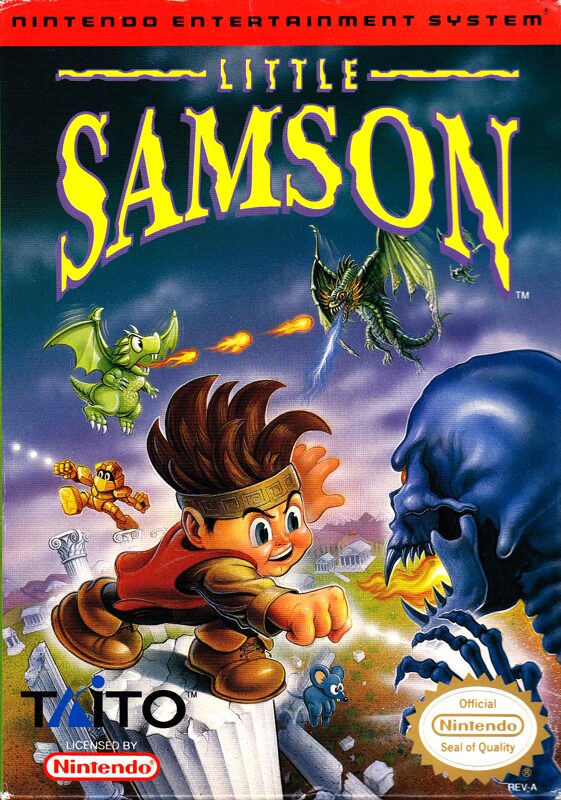
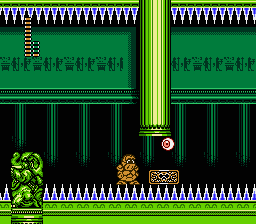

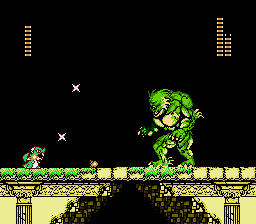
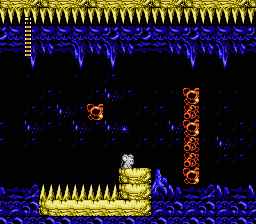
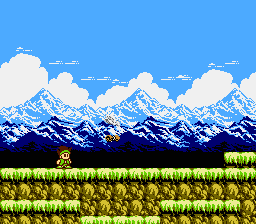
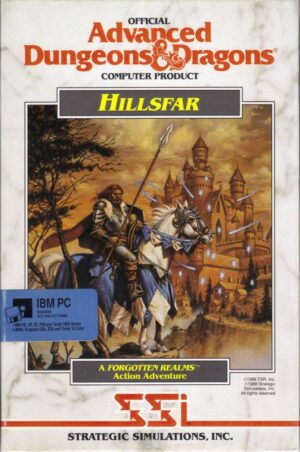
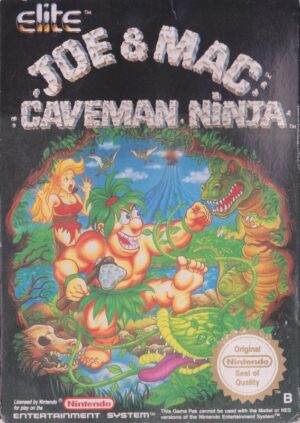

Reviews
There are no reviews yet.